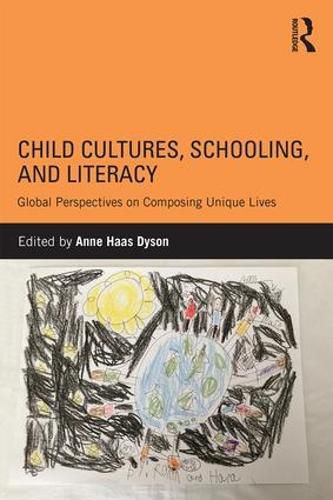Readings Newsletter
Become a Readings Member to make your shopping experience even easier.
Sign in or sign up for free!
You’re not far away from qualifying for FREE standard shipping within Australia
You’ve qualified for FREE standard shipping within Australia
The cart is loading…






Through analysis of case studies of young children (ages 3 to 8 years), situated in different geographic, cultural, linguistic, political, and socioeconomic sites on six continents, this book examines the interplay of childhoods, schooling, and, literacies. Written language is situated within particular childhoods as they unfold in school. A key focus is on children’s agency in the construction of their own childhoods.
The book generates diverse perspectives on what written language may mean for childhoods. Looking at variations in the complex relationships between official (curricular) visions and unofficial (child-initiated) visions of relevant composing practices and appropriate cultural resources, it offers, first, insight into how those relationships may change over time and space as children move through early schooling, and, second, understanding of the dynamics of schools and the experience of childhoods through which the local meaning of school literacy is formulated. Each case-each child in a particular sociocultural site-does not represent an essentialized nation or a people but, rather, a rich, processual depiction of childhood being constructed in particular local contexts and the role, if any, for composing.
$9.00 standard shipping within Australia
FREE standard shipping within Australia for orders over $100.00
Express & International shipping calculated at checkout
Through analysis of case studies of young children (ages 3 to 8 years), situated in different geographic, cultural, linguistic, political, and socioeconomic sites on six continents, this book examines the interplay of childhoods, schooling, and, literacies. Written language is situated within particular childhoods as they unfold in school. A key focus is on children’s agency in the construction of their own childhoods.
The book generates diverse perspectives on what written language may mean for childhoods. Looking at variations in the complex relationships between official (curricular) visions and unofficial (child-initiated) visions of relevant composing practices and appropriate cultural resources, it offers, first, insight into how those relationships may change over time and space as children move through early schooling, and, second, understanding of the dynamics of schools and the experience of childhoods through which the local meaning of school literacy is formulated. Each case-each child in a particular sociocultural site-does not represent an essentialized nation or a people but, rather, a rich, processual depiction of childhood being constructed in particular local contexts and the role, if any, for composing.